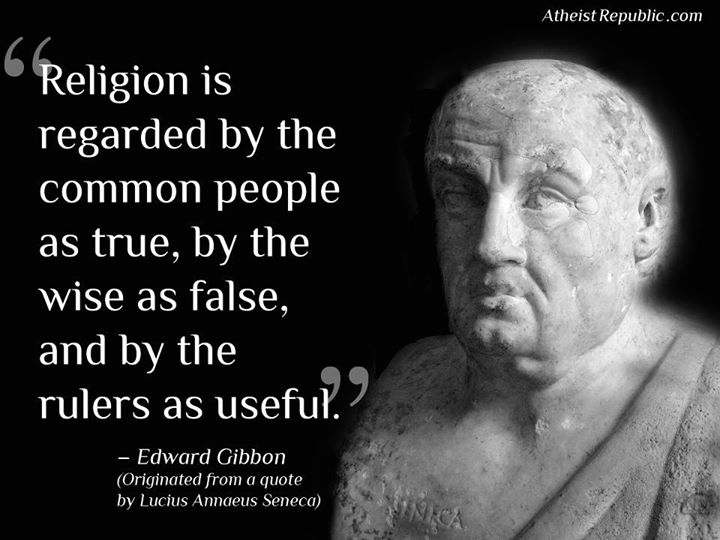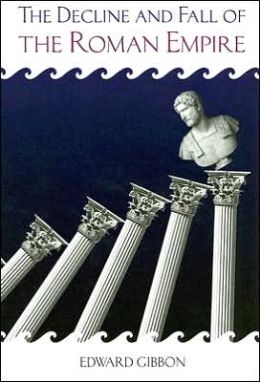|
home | what's new | other sites | contact | about |
||
|
Word Gems exploring self-realization, sacred personhood, and full humanity
return to the main-page article on "Bible"
In chapter 15 of Edward Gibbon’s seminal work, “The Decline and Fall of the Roman Empire” (1776), we find the famous English writer offering severe doubt concerning the historicity of the blotting out of the sun and earthquakes at the death of Jesus. Essentially, his argument is this: “How can it be that the miracles and other astounding phenomena surrounding the life of Jesus were not reported by local Roman officials in their required missives to Caesar? We know that they did report all sorts of lesser incidents, but not a word about events that, purportedly, rocked the world in 33 AD.” Gibbon makes a good point. Editor’s note: Recently, I was listening to taped university lectures, a survey of English literature. Edward Gibbon came up on the list, his work was reviewed, and the professor commented on Gibbon’s famous query, to the effect: “Gibbon’s question has been refuted and dealt with by modern scholars.” And when I heard that I thought – Really? I’d like to see this refutation. Let’s begin with Gibbon in his own words:
The world appeared as coming to an end, but chaotic meteorlogical display was met by "no comment"? "But how shall we excuse the supine inattention of the Pagan and philosophic world to those evidences which were presented by the hand of Omnipotence, not to their reason, but to their senses? During the age of Christ, of his apostles, and of their first disciples, the doctrine which they preached was confirmed by innumerable prodigies. The lame walked, the blind saw, the sick were healed, the dead were raised, daemons were expelled, and the laws of Nature were frequently suspended for the benefit of the church. But the sages of Greece and Rome turned aside from the awful spectacle, and, pursuing the ordinary occupations of life and study, appeared unconscious of any alterations in the moral or physical government of the world. Under the reign of Tiberius, the whole earth, (194) or at least a celebrated province of the Roman empire, (195) was involved in a preternatural darkness of three hours. Even this miraculous event, which ought to have excited the wonder, the curiosity, and the devotion of mankind, passed without notice in an age of science and history. (196) It happened during the lifetime of Seneca and the elder Pliny, who must have experienced the immediate effects, or received the earliest intelligence, of the prodigy. Each of these philosophers, in a laborious work, has recorded all the great phenomena of Nature, earthquakes, meteors, comets, and eclipses, which his indefatigable curiosity could collect. (197) Both the one and the other have omitted to mention the greatest phenomenon to which the mortal eye has been witness since the creation of the globe. A distinct chapter of Pliny (198) is designed for eclipses of an extraordinary nature and unusual duration; but he contents himself with describing the singular defect of light which followed the murder of Caesar, when, during the greatest part of a year, the orb of the sun appeared pale and without splendour. This season of obscurity, which cannot surely be compared with the preternatural darkness of the Passion, had been already celebrated by most of the poets (199) and historians of that memorable age. (200)"
Just a little too busy to report the end of the world to Caesar? Elsewhere, in an article discussing the historical evidence for Jesus’ existence, I referenced a statement by Will Durant:
What is offered in support of the authenticity of the biblical account? Not much. I will not spend a lot of time on this. You can read for yourself discussions on the internet; but you will be disappointed. However, if brief, the primary explanation of the Sun going dark at noontime centers about a solar eclipse. This seemed plausible to some, but then it was pointed out that (1) a solar eclipse lasts but several minutes, not three hours; and, (2) the death of Jesus occurred at Passover, when the moon is full, but a solar eclipse happens only with a new moon. Other explanations attempt to say that a dust storm caused the blackout, but I don’t need to comment on that. These hollow "explanations" constitute what pass for refutation of Gibbon. Uh-huh.
|
||
|
|

